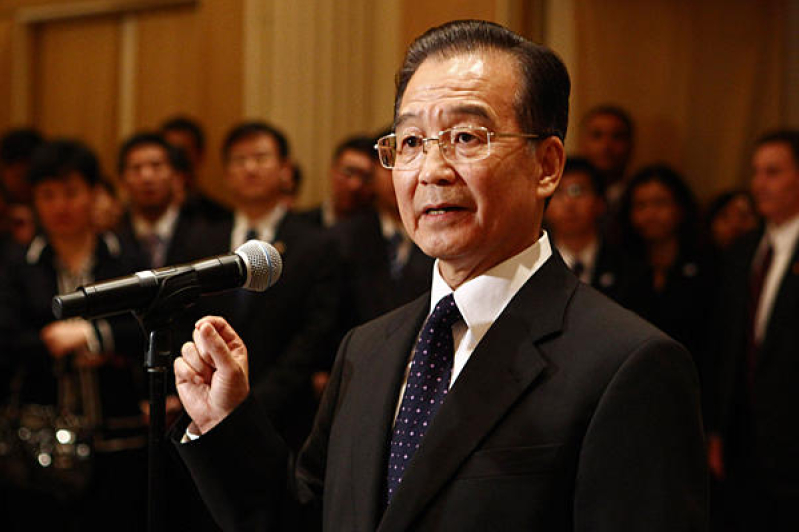
Chinese Premier Wen Jiabao, who is stepping down in couple days from public office, is a highly controversial figure. Chinese in mainland China and overseas have differing opinions towards Wen. For some believers, they desire to find out whether Wen is a Christian or not.
A Chinese-American pastor named Paul recently disclosed to The Gospel Herald that Wen and his family are practicing believers. The aged pastor has verified his finding through multiple sources in recent years.
Wen Jiabao published a poem “Yan Yuan Xin Kong” (Looking to the Starry Sky) in the state-run’s newspaper People’s Daily on September 4, 2007. The poem referenced various words and phrases that originate from the Bible. It sparked a heated debate, and the rumor that claimed Wen as a believer started to spread.
The poem goes like this: “I look to the starry sky, it is that wide and so deep; that endless truth caused me to seek, pursue bitterly. I look to the starry sky, it is that dignified and holy; that natural justice filled me with passionate love, feeling respect and fear. I look to the starry sky, it is that free yet quiet; that broad heart lets my soul rest, depend. I look to the starry sky, it is that maganificent and splendid; that eternal heat ignited the flames of hope, sounds the thunder of spring.”
Wen’s poem emanated his longing and fear towards the “Shian Tian” (heavens). The phrases are filled with religious overtone, where the words Holy and Fear originate from the Scripture; if the word “starry sky” is replaced with “God,” then the poem would be Christian in meaning.
Pastor Paul, who ministers in New York City, said that the premier is like the Bible character Nicodemus, who was a member of the Jewish ruling council and met Jesus only at night; in another words, Wen believes in secret and dare not speak of his faith because of his position as the premier.
The pastor said that he has confirmed this information through various sources. The first source is a South-East Asia Chinese pastor who is close with the Chinese headquarters. Several years ago, he told Paul that Wen is Christian.
After this, when pastor Paul was serving in Beijing, Hebei, Tianjin area, an influential church pastor verified this information. That leader also said that Wen’s grandfather was a missionary, so Wen’s family has a definite relationship with Christianity.
Moreover, a friend of pastor Paul again confirmed this fact. That friend once rode in Mrs. Wen’s designated vehicle to tour Zhongnanhai, a palace used by the central government as headquarters. The person accompanying him was Mrs. Wen’s company assistant, who disclosed that Wen and his wife are both devout believers and holds regular family services.
Although these rumors haven’t been personally verified by Wen, pastor Paul said these sources are reliable and can be trusted.
Five years ago, pastor Paul was invited to deliver a sermon at a Three-Self church in Southern China. The local church pastor disclosed a document in black and white letters that stated the Communist Party members are free to believe in any religion, but limited to internal consensus and no disclosure to the public.
In recent years, more and more mainland China and overseas pastors have developed deeper connections with Zhongnanhai. After returning from China, they would disclose in both public and private meetings that some high level Chinese party members have become believers or hold high regards for Christianity.
Despite these claims, large number of persecution cases towards house churches and their leaders occur rampantly throughout China.
For some people, the news that China’s top officials are converting to Christianity give them hope in China’s future religious policies.
[Editor's note: reporter Luke Leung translated the article.]






